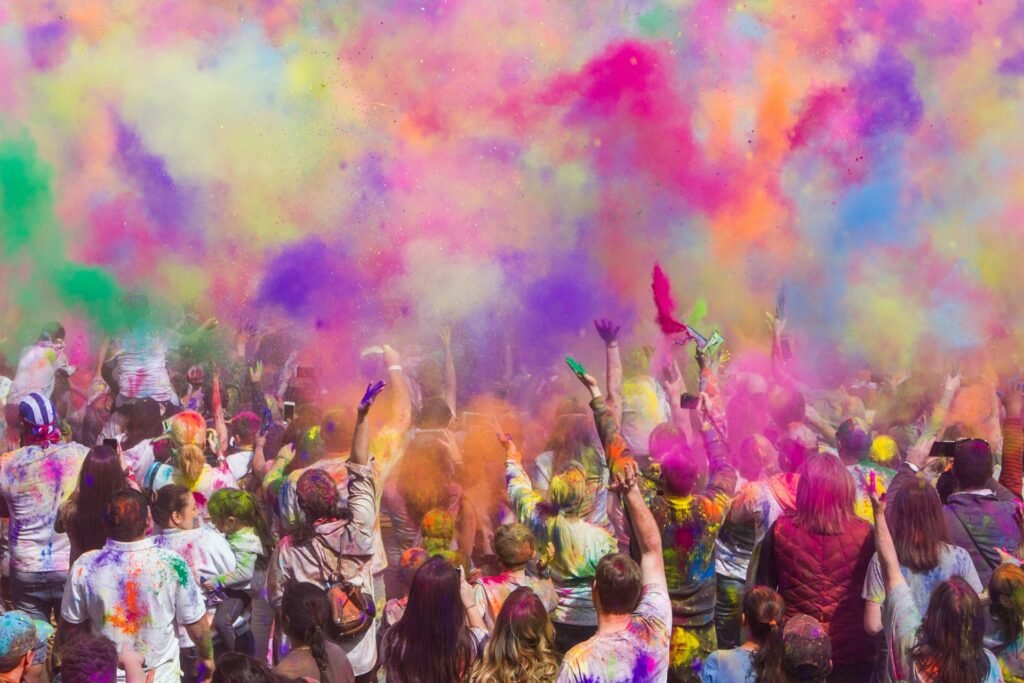Festivals are an integral part of human culture, marking special occasions, celebrations, and rituals. They serve as vibrant reflections of the diversity and richness of societies worldwide.
The Significance of Festivals
Cultural Importance
Festivals play a crucial role in preserving cultural heritage and traditions. They provide a platform for communities to showcase their unique customs, rituals, music, dance, and cuisine.
Social Bonding
These occasions foster a sense of unity and belonging among individuals, families, and communities. Festivals bring people together, strengthening social ties and promoting harmony.
Economic Impact
Moreover, festivals often stimulate economic growth through increased tourism, commerce, and cultural exchange. They create opportunities for local businesses, artisans, and performers, contributing to the overall prosperity of regions.
Types of Festivals
Religious Festivals
Religious festivals, such as Christmas, Eid al-Fitr, and Hanukkah, hold immense spiritual significance for adherents of various faiths. They commemorate significant events or religious figures and are marked by prayers, rituals, and feasting.
Cultural Festivals
Cultural festivals celebrate the heritage and traditions of specific communities or regions. Examples include the Holi festival in India, the Dia de los Muertos in Mexico, and the Mardi Gras in New Orleans.
Seasonal Festivals
Seasonal festival mark the changing of seasons or agricultural milestones. These include harvest festival like Thanksgiving in the United States, as well as spring festival like Nowruz in Iran and Songkran in Thailand.
Popular Festivals Around the World
Diwali
Diwali, also known as the Festival of Lights, is one of the most significant Hindu festival celebrated worldwide. It symbolizes the victory of light over darkness and good over evil, with colorful decorations, fireworks, and the exchange of sweets.
Chinese New Year
Chinese New Year, or Spring Festival, is a major celebration in Chinese culture, marking the beginning of the lunar new year. It involves family reunions, feasting, dragon and lion dances, and the giving of red envelopes (hongbao) for luck.
Oktoberfest
Oktoberfest originated in Munich, Germany, and has since become the world’s largest beer festival. It attracts millions of visitors each year who indulge in traditional Bavarian cuisine, music, and of course, beer.
Carnival in Brazil
The Carnival in Brazil is a spectacular extravaganza known for its vibrant samba parades, elaborate costumes, and infectious music. It is a joyous celebration leading up to Lent, where people dance, sing, and revel in the streets.
The Evolution of Festival
Festivals have evolved over centuries, influenced by historical, cultural, and social changes. While many traditional elements endure, modern festival often incorporate new technologies, entertainment formats, and global trends.
Festival Traditions and Customs
Each festival is characterized by its unique traditions and customs, passed down through generations. These may include religious rituals, folk dances, traditional attire, culinary delights, and symbolic decorations.
Impact of Technology on Festival
Technology has revolutionized the way festival are organized, promoted, and experienced. From online ticketing and live streaming to interactive apps and virtual reality experiences, technology has enhanced accessibility and engagement for participants worldwide.
Challenges Faced by Festivals
Environmental Concerns
Large-scale festival can have detrimental effects on the environment, including waste generation, pollution, and habitat destruction. Organizers are increasingly implementing sustainable practices to mitigate these impacts.
Commercialization
The commercialization of festival raises concerns about authenticity, cultural appropriation, and commodification. Balancing traditional values with commercial interests presents a significant challenge for organizers and participants alike.
Festival Tourism
Festival tourism has emerged as a thriving niche within the travel industry, with millions of people traveling each year to attend festivals around the globe. This trend contributes to cultural exchange, economic development, and cross-cultural understanding.
Future of Festivals
As societies continue to evolve, festival will adapt and innovate to meet the changing needs and preferences of participants. Sustainability, inclusivity, and digital integration are likely to shape the future landscape of festival worldwide.
Conclusion
Festival serve as vibrant expressions of human creativity, diversity, and collective spirit. They enrich our lives, connect us to our roots, and foster a sense of belonging in an increasingly interconnected world.

